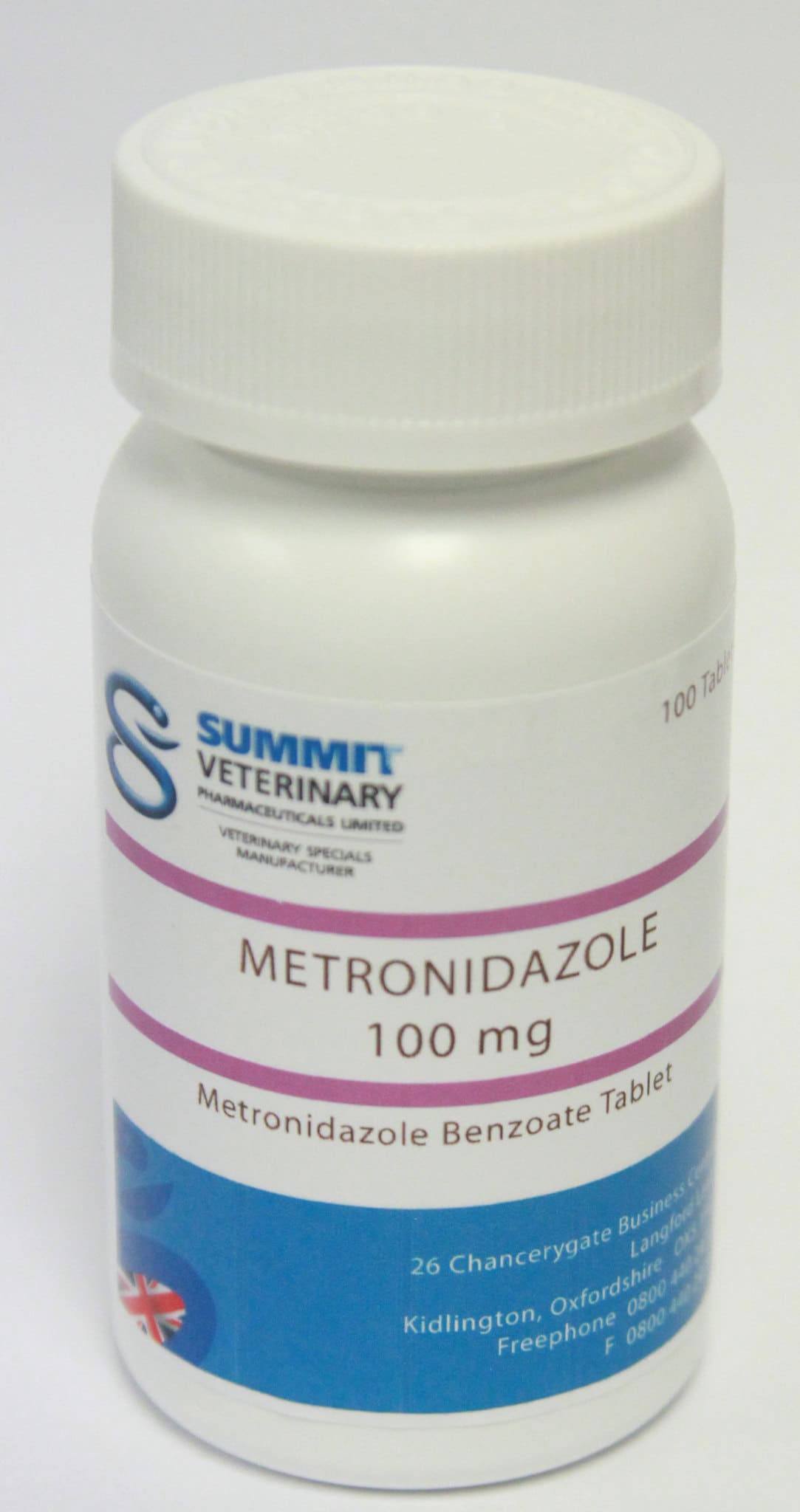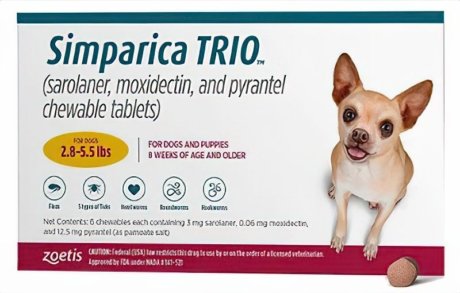Metronidazole For Dogs | 4 Common Uses, Dosage, Side Effects, Care Tips
In the realm of canine health and veterinary care, Metronidazole stands as a versatile and trusted ally. This comprehensive guide is dedicated to unraveling the myriad aspects of Metronidazole for dogs, shedding light on its uses, mechanisms, dosage guidelines, potential side effects, and much more. As a pet owner, understanding how and when to use this medication can play a pivotal role in ensuring your furry friend’s well-being. Join us on this exploration of Metronidazole’s role in the realm of veterinary medicine and discover how it can contribute to your dog’s health and happiness.
Understanding Metronidazole

What is Metronidazole?
Metronidazole, often referred to as “Flagyl,” is a versatile antibiotic used in both human and veterinary medicine. This medication belongs to the nitroimidazole class and is especially effective against anaerobic bacteria and some protozoa. In dogs, Metronidazole has become a go-to treatment for various infections due to its broad-spectrum activity.
Metronidazole acts by penetrating the cells of microorganisms, where it disrupts the DNA structure, preventing their replication. This action is particularly useful in treating infections caused by anaerobic bacteria, which thrive in oxygen-deprived environments, such as the intestines.
How Does Metronidazole Work?
The mechanism of action behind Metronidazole’s effectiveness is its interference with DNA synthesis. By doing so, it disrupts the genetic material of microorganisms, preventing their growth and ultimately causing their death. This makes it highly effective against a wide range of pathogens, including certain bacteria and protozoa.
Metronidazole’s ability to target anaerobic bacteria and protozoa makes it invaluable in treating conditions like periodontal disease, gastrointestinal infections, and protozoal infections such as Giardia and Trichomoniasis.
How Long For Metronidazole To Work On Diarrhea Dog
The time it takes for Metronidazole to work on diarrhea in dogs can vary depending on the underlying cause of the diarrhea and the specific condition being treated. Metronidazole is an antibiotic commonly prescribed to address various gastrointestinal issues, including bacterial or parasitic infections that may lead to diarrhea. Here are some general guidelines:
- Bacterial Infections: If the diarrhea is caused by a bacterial infection, Metronidazole can begin to work within a few days. You may see an improvement in your dog’s condition, such as firmer stools and reduced frequency of bowel movements, as early as 2-3 days into the treatment.
- Parasitic Infections: In cases of parasitic infections like Giardia or trichomoniasis, Metronidazole may also start to have an effect within a few days. However, full resolution of symptoms may take up to a week or longer.
- Inflammatory Bowel Disease (IBD): If your dog’s diarrhea is associated with inflammatory bowel disease, the response to Metronidazole can be more gradual. It may take a week or two to see significant improvement in symptoms.
- Other Causes: If the diarrhea has a different underlying cause, such as dietary issues or stress, Metronidazole may not be effective, and the treatment may require a different approach.
Metronidazole 50 Mg For Dogs

Metronidazole is prescribed for dogs at a dosage of 50 mg when treating various conditions, including gastrointestinal infections or periodontal disease. The specific dosage and treatment duration will be determined by a veterinarian based on your dog’s condition.
Metronidazole 250 Mg For Dogs
Metronidazole may be prescribed at a dosage of 250 mg for dogs with more severe or complex infections. This higher dosage may be used to address conditions like certain bacterial or protozoal infections. It’s important to follow the veterinarian’s guidance for the correct dosage and duration of treatment.
Metronidazole 500 Mg For Dogs
In some cases, a higher dosage of 500 mg of Metronidazole may be prescribed for larger dogs or for severe infections. The use of 500 mg tablets should always be under the direct supervision and guidance of a veterinarian to ensure safety and effectiveness.
Tylosin Vs Metronidazole For Dogs
Here’s a comparison between Tylosin and Metronidazole for dogs:
| Aspect | Tylosin | Metronidazole |
|---|---|---|
| Classification | Antibiotic | Antibiotic |
| Mechanism of Action | Inhibits bacterial protein synthesis | Disrupts DNA and RNA, affecting bacterial growth |
| Common Uses | – Treatment of certain bacterial infections | – Treatment of various bacterial and protozoal infections; – Gastrointestinal issues such as diarrhea |
| Prescription Required | Yes | Yes |
| Over-the-Counter Availability | No | No |
| Typical Dosage Form | Capsules, soluble powder, injectable, ointment | Tablets, oral suspension, injectable, topical gel |
| Potential Side Effects | – Diarrhea – Vomiting – Allergic reactions | – Vomiting – Diarrhea – Loss of appetite – Neurological symptoms (rare) |
| Interactions with Other Medications | May interact with other antibiotics and some antacids | May interact with other medications; consult a vet |
| Usage in Dogs with Food Allergies | May be suitable for dogs with food allergies | May be suitable for dogs with food allergies |
| Use in Pregnant or Nursing Dogs | Use with caution and under veterinary guidance | Use with caution and under veterinary guidance |
| Effectiveness for Diarrhea | Can be used for certain types of diarrhea | Specifically used for diarrhea with a known bacterial or protozoal cause; may not be effective for all types of diarrhea |
Common Uses of Metronidazole in Dogs
1. Treatment of Gastrointestinal Infections
One of the most common applications of Metronidazole in dogs is the treatment of gastrointestinal infections. It effectively combats anaerobic bacteria responsible for conditions like diarrhea and colitis. When your dog experiences digestive distress, your veterinarian may prescribe Metronidazole to alleviate symptoms and promote recovery.
2. Periodontal Disease
Dental health is crucial for dogs, and Metronidazole plays a pivotal role in addressing periodontal disease. By targeting the bacteria causing gum infections, Metronidazole contributes to better oral health in your canine companion.
3. Skin Infections
Skin infections in dogs can be both uncomfortable and problematic. Metronidazole’s effectiveness against specific bacteria makes it a valuable treatment option for skin conditions. It can help in cases of bacterial dermatitis, pyoderma, and other skin infections, promoting healing and relief.
4. Protozoal Infections
Protozoal infections like Giardia and Trichomoniasis can affect your dog’s well-being. Metronidazole is highly effective against these microscopic parasites, helping eliminate them from your dog’s system. It can significantly reduce symptoms such as diarrhea and discomfort.
Dosage Guidelines of Metronidazole For Dogs
Determining the correct Metronidazole dosage for your dog is crucial for effective treatment and to avoid potential side effects. Dosage varies based on your dog’s weight, the severity of the condition, and the form of the medication (tablets, liquid, or cream). Always follow your veterinarian’s prescribed dosage and administration instructions diligently to ensure your dog receives the right amount of medication.
Metronidazole For Dogs Dosage Chart
Here’s a sample Metronidazole dosage chart for dogs based on body weight. Please note that this is a general guideline, and the actual dosage should be determined by your veterinarian based on your dog’s specific condition. Metronidazole is typically available in various forms (tablets, suspensions, and injections), and your vet will prescribe the appropriate one.
| Weight of Dog (in pounds) | Metronidazole Dosage (mg) |
|---|---|
| Up to 10 | 25 mg to 50 mg |
| 11 to 20 | 50 mg to 100 mg |
| 21 to 30 | 100 mg to 150 mg |
| 31 to 40 | 150 mg to 200 mg |
| 41 to 50 | 200 mg to 250 mg |
| Over 50 | Individualized dosage based on veterinary recommendation |
Metronidazole Dosage For 20 Lb Dog
The appropriate Metronidazole dosage for a 20-pound (approximately 9 kg) dog can vary based on the specific condition being treated and your veterinarian’s recommendations. Generally, the typical dosage falls within the range of 50 mg to 100 mg of Metronidazole for a 20-pound dog. Your veterinarian will determine the exact dosage based on your dog’s individual needs and the nature of the condition being treated.
To ensure the correct dosage and treatment plan for your dog, it is crucial to consult with your veterinarian. They will consider your dog’s specific health status, the underlying condition, and any potential contraindications or interactions with other medications your dog may be taking.
Never adjust the dosage or administer Metronidazole without veterinary guidance, as improper use can lead to potential side effects and reduced effectiveness. Always follow your veterinarian’s prescription and dosage instructions for the best outcome and the safety of your pet.
Potential Side Effects of Metronidazole For Dogs
While Metronidazole is generally safe for dogs, it’s essential to be aware of potential side effects and how to manage them:
1. Vomiting
Some dogs may experience vomiting after taking Metronidazole. To minimize this side effect, try administering the medication with a small amount of food. If vomiting persists or worsens, consult your veterinarian for guidance.
2. Diarrhea
Metronidazole-induced diarrhea is another possible side effect. Ensure your dog stays hydrated and monitor their bowel movements. If diarrhea is severe or persists, consult your veterinarian for proper management.
3. Loss of Appetite
A temporary loss of appetite can occur during Metronidazole treatment. Encourage eating by offering small, appetizing meals. Maintaining hydration is essential during this period.
4. Lethargy
Lethargy or unusual tiredness may be observed in some dogs after Metronidazole administration. This side effect usually resolves on its own, but if it persists, consult your veterinarian.
Precautions and Warnings of Metronidazole For Dogs
Before administering Metronidazole to your dog, communicate any relevant information to your veterinarian. This includes disclosing any underlying health conditions, allergies, or medications your dog may be taking. Such information is crucial for your veterinarian to determine whether Metronidazole is the appropriate treatment choice.
Interactions with Other Medications instead of Metronidazole For Dogs
Metronidazole can interact with certain medications, which is why full transparency with your veterinarian is essential. Make sure to inform them about all the drugs your dog is currently taking, including over-the-counter supplements and herbal remedies. Your veterinarian can provide guidance on potential interactions and necessary adjustments to the treatment plan.

Can Metronidazole be Used in Puppies?
Metronidazole is generally considered safe for use in puppies when prescribed by a veterinarian. However, the dosage and duration of treatment may vary based on the specific condition being treated. Always consult your veterinarian before administering any medication to puppies.
Alternatives to Metronidazole
While Metronidazole is effective in many cases, it may not always be the most suitable treatment option. Your veterinarian may recommend alternative medications or therapies depending on the diagnosis and your dog’s specific needs. Always follow your veterinarian’s guidance when considering treatment options.
Tips for Administering Metronidazole
Administering medication to dogs can be challenging, but there are strategies to make the process more manageable:
- Mixing with Food: To make the medication more palatable, mix it with a small amount of your dog’s food.
- Pill Dispensers and Treat Pockets: Pill dispensers and treat pockets can help hide tablets and make administration smoother.
- Encourage Drinking Water: Ensure your dog drinks water after taking the medication to aid in absorption and maintain hydration.
Monitoring Your Dog’s Progress
Throughout the course of Metronidazole treatment, closely monitor your dog’s progress. If there is no improvement or if the condition worsens, consult your veterinarian promptly for potential adjustments to the treatment plan.
When to Consult Your Veterinarian
If your dog experiences severe side effects, allergic reactions, or any unusual symptoms while taking Metronidazole, seek immediate veterinary care. Your veterinarian will assess the situation and make necessary adjustments to the treatment plan to ensure your dog’s well-being.
The Importance of a Healthy Diet
A balanced and nutritious diet plays a vital role in supporting your dog’s overall health and recovery. Collaborate with your veterinarian to determine the appropriate dietary adjustments, if needed, to complement the effectiveness of Metronidazole treatment.
How To Give Metronidazole For Dogs
Metronidazole is a medication often prescribed to dogs to treat various gastrointestinal and bacterial infections. Administering it correctly is crucial to ensure the effectiveness of the treatment and minimize potential side effects. Here’s how to give Metronidazole to your dog:
- Follow Veterinary Instructions: Always follow the dosage and administration instructions provided by your veterinarian. They will prescribe the appropriate dosage based on your dog’s weight and specific condition.
- Tablet Form: Metronidazole is available in tablet form. You can administer the tablet directly by placing it at the back of your dog’s throat and ensuring they swallow it. You can also hide the tablet in a small amount of soft food or a treat to make it more palatable.
- Liquid Form: In some cases, Metronidazole may be prescribed as a liquid suspension. Use a syringe or dropper to measure the exact dose and squirt it into your dog’s mouth. Be sure to follow your vet’s instructions regarding dilution, if necessary.
- Treatment Duration: Administer the medication for the full duration prescribed by your veterinarian, even if your dog’s symptoms improve before the treatment is completed. Stopping the medication prematurely can allow the infection to persist or become resistant.
- Food: Some dogs may experience stomach upset when taking Metronidazole. If this is the case, giving the medication with a small amount of food can help reduce stomach discomfort. However, be sure to ask your veterinarian if this is suitable for your dog’s specific treatment.
Alternative To Metronidazole For Dogs
While Metronidazole is a commonly prescribed medication for various infections in dogs, there are alternative antibiotics and treatments that your veterinarian may consider based on your dog’s condition. Some alternatives include:
- Clindamycin: Another antibiotic often used to treat certain bacterial infections in dogs.
- Tetracycline: Used to address some bacterial infections, but it may have different side effects compared to Metronidazole.
- Sulfonamides: These antibiotics can be used in some cases to treat infections.
- Natural Remedies: In specific situations, natural remedies, such as probiotics, may be recommended to support the dog’s gastrointestinal health.
Metronidazole For Dogs Without A Vet Prescription
Metronidazole is a prescription medication, and it is typically not available without a veterinarian’s prescription. It’s important to consult with a veterinarian for a proper diagnosis and treatment plan before using Metronidazole or any other prescription medication for your dog. The vet will assess your dog’s condition and provide the appropriate prescription based on their health needs.
Where Can I Buy Metronidazole Over The Counter For Dogs
Metronidazole is a prescription medication for dogs, and it was not available over the counter. It is essential to obtain Metronidazole through a licensed veterinarian who can diagnose your dog’s condition and prescribe the appropriate treatment. Always follow your veterinarian’s recommendations to ensure your dog’s health and safety. Regulations regarding the sale of prescription medications may vary by location, so it’s advisable to consult with your local veterinary clinic for guidance on obtaining Metronidazole.
Conclusion:
Metronidazole is an invaluable medication in veterinary medicine, offering a wide range of applications in treating infections in dogs. When used responsibly and under the guidance of a veterinarian, it can significantly improve your dog’s health and well-being.
Frequently Asked Questions (FAQs):
-
Can I give Metronidazole to my dog without a prescription?
No, Metronidazole is a prescription medication and should only be administered under the supervision of a licensed veterinarian.
-
How long does it take for Metronidazole to start working in dogs?
The time it takes for Metronidazole to show improvement varies depending on the condition being treated. It’s essential to follow the prescribed treatment duration.
-
Can Metronidazole be used to treat respiratory infections in dogs?
Metronidazole is not typically used to treat respiratory infections in dogs. Your veterinarian will recommend an appropriate antibiotic if needed.
-
Are there any natural alternatives to Metronidazole for dog infections?
Some natural remedies and supplements may help support your dog’s immune system, but they should not be used as a replacement for prescribed medications. Consult your vet for guidance.
-
Can Metronidazole be used for long-term treatment in dogs?
Long-term use of Metronidazole should be carefully monitored by a veterinarian. It’s essential to follow their guidance to avoid potential side effects.
-
What are the potential interactions between Metronidazole and other medications?
Metronidazole can interact with certain drugs, so inform your vet about all medications your dog is taking to prevent adverse reactions.
-
Is Metronidazole safe for pregnant or nursing dogs?
Consult your veterinarian before using Metronidazole in pregnant or nursing dogs, as the medication’s safety in such cases may vary.
-
Can Metronidazole cause allergic reactions in dogs?
While rare, allergic reactions to Metronidazole are possible. Contact your vet immediately if you suspect an allergy.
-
What should I do if my dog refuses to take Metronidazole?
Consult your vet for alternative methods of administration or medications if your dog refuses to take Metronidazole.
-
Are there any dietary restrictions while using Metronidazole in dogs?
Your vet may recommend specific dietary adjustments during Metronidazole treatment, so consult them for guidance.
-
Can Metronidazole be used to treat chronic diarrhea in dogs?
Metronidazole may be used to manage chronic diarrhea, but only as recommended by your veterinarian.
-
Can Metronidazole be Used for Ear Infections in Dogs?
Yes, Metronidazole can be prescribed to treat ear infections in dogs, especially if they are caused by bacteria or fungi. Your veterinarian will determine the appropriate treatment based on the type and severity of the infection.
-
What is the Typical Metronidazole Dosage for Dogs with Diarrhea?
The dosage of Metronidazole for dogs with diarrhea varies depending on the dog’s weight and the underlying cause of the diarrhea. It’s essential to follow your veterinarian’s recommended dosage to ensure effective treatment.
-
Is Metronidazole Safe for Senior Dogs?
Metronidazole can be used in senior dogs, but it’s crucial to consider their overall health and any preexisting conditions. Your veterinarian will adjust the dosage and monitor your senior dog’s response to treatment closely.
-
Can Metronidazole Cause Allergic Reactions in Dogs?
While rare, Metronidazole can trigger allergic reactions in some dogs. Watch for signs such as itching, hives, swelling, or difficulty breathing. If you suspect an allergy, contact your veterinarian immediately.
-
How Long Should I Administer Metronidazole to My Dog for Skin Infections?
The duration of Metronidazole treatment for skin infections depends on the severity and type of infection. Your veterinarian will provide specific instructions, but treatment typically lasts for a minimum of 7 to 10 days.
-
Can Metronidazole Treat Bladder Infections in Dogs?
Metronidazole is not typically used to treat bladder infections in dogs. Urinary tract infections often require a different class of antibiotics. Consult your veterinarian for proper diagnosis and treatment.
-
Are There Any Over-the-Counter Alternatives to Metronidazole for Dogs?
There are no over-the-counter alternatives for Metronidazole. It is a prescription medication, and using non-prescription options may not effectively treat your dog’s specific condition.
-
Can I Give My Dog Metronidazole for Travel-Related Diarrhea?
Travel-related diarrhea in dogs is often caused by stress or dietary changes. Metronidazole may not be necessary in such cases. Consult your veterinarian for guidance, and consider preventive measures like gradual dietary transitions before travel.
-
Can Metronidazole be Used as a Preventive Measure for Parasite Infections in Dogs?
Metronidazole is primarily used to treat existing infections, and its use for prevention is limited. Consult your veterinarian for advice on effective parasite prevention strategies, such as regular deworming.
Recommended:
Giardia in Dogs | Symptoms, Treatment, Natural Remedies and More
Apoquel for Dogs : A Comprehensive Guide to Canine Allergy Relief





























